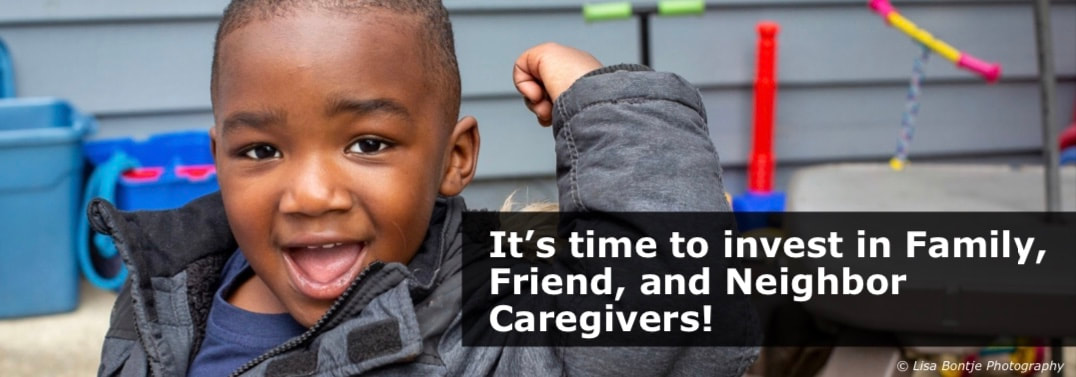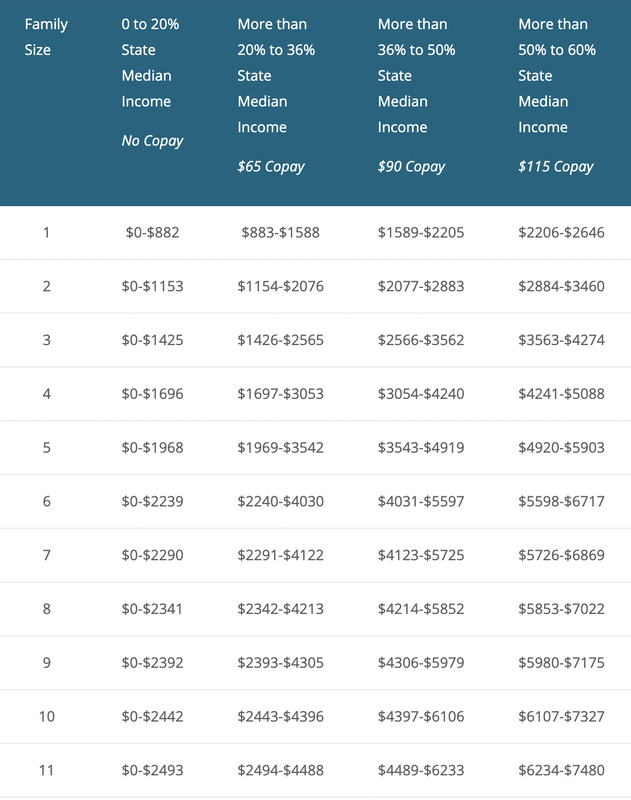 Family, friend and neighbor (FFN) providers include grandparents, aunts and uncles, elders, older siblings, friends, neighbors, and others who help families by providing child care. Both in Washington and around the nation, FFN care is the most common type of child care for infants and toddlers and for school-age children before and after school. FFN providers are unlicensed and not regulated by the state, although some FFN providers can receive child care subsidies for the care they provide. To be considered an FFN provider you must meet Washington Administrative Code requirements WAC 110-16. Why Choose FFN CareFamilies choose FFN care for a number of reasons, including:
Most FFN providers view themselves as extended family or surrogate parents, rather than professional child care providers. One of the predominant reasons FFN providers say they do this work is that they enjoy being with the children they care for, and they enjoy helping parents. In many cultures, FFN care is not seen as a child care arrangement but as a way the family and community work together to raise children. Can I Get Help to Pay My FFN Provider? Some families qualify for help to pay their family, friend or neighbor (FFN) child care. This is called a subsidy. Caregivers can be paid by the state for caring for children of eligible families. Caregivers paid by the state are called "in-home/relative providers." The Department of Children, Youth, and Families (DCYF) determines a family's eligibility for a child care subsidy, and approves the requested provider. There are 3 ways to apply:
View the instructions on how to create an online account with Washington Connection. Head Start is funded by the federal government for children ages 3 and 4 and, in some locations, pregnant women and children birth to age 3.
Head Start includes:
Children who attend Head Start learn to manage their feelings, get along with others and follow classroom procedures. They build the beginning skills for reading, math and science. The program work closely with parents to support their children’s health and education and to meet family goals. They help families access medical and dental care and social services. Children in this type of high-quality program nationwide are:
More About the Head Start
EnrollmentMost children are eligible for Head Start based on their age and family income. Up to 10% of Head Start slots can be filled by children above the income requirement who have multiple support needs, including:
After eligibility is determined, children are prioritized for enrollment as space is available in their communities. To enroll a child, contact the Head Start Location near you. Questions? Contact dcyf.hsco@dcyf.wa.gov for Head Start ECEAP (pronounced "E-Cap") is the Early Childhood Education and Assistance Program funded by Washington State for children 3 and 4.
ECEAP includes
Children in this type of high-quality program nationwide are:
More About ECEAP
An ECEAP Family’s Story To enroll a child, contact the ECEAP agency near you. Questions? Contact eceap@dcyf.wa.gov for ECEAP. Working Connections Child Care (WCCC) helps eligible families pay for child care. When a family qualifies for child care subsidy benefits and chooses an eligible provider, the state pays a portion of the cost of child care. Parents may be responsible for a copayment to their provider each month.
Click here for more information about qualifications.
The Child Care Subsidy Programs (CCSP) help families to pay for quality child care through either: 1-844-626-8687 - CCSP contact line for families
Child Care Subsidy Program - You May Qualify READ THE PRINTABLE FLYER (AVAILABLE IN ENGLISH, SPANISH, AND SOMALI) ECEAP and Head Start Preschool ProgramsChildren in low-income households may qualify for Early Childhood Education and Assistance Program (ECEAP) or Head Start preschools. Resources for parents:
|
Archives |
|
Translate this page in your preferred language: You can translate the content of this page by selecting a language in the select box. |
|
GET INVOLVEDBLACK HISTORY MONTHWOMEN'S HISTORY MONTH |
First Five Years & Beyond
Want to give back? Get involved. Email: info@ffyb.org Phone: (206) 504-9560 Address: 302 W. Harrison St. Suite #101 Kent, WA 98032 |
©2014-2022 First Five Years & Beyond | Privacy Policy


